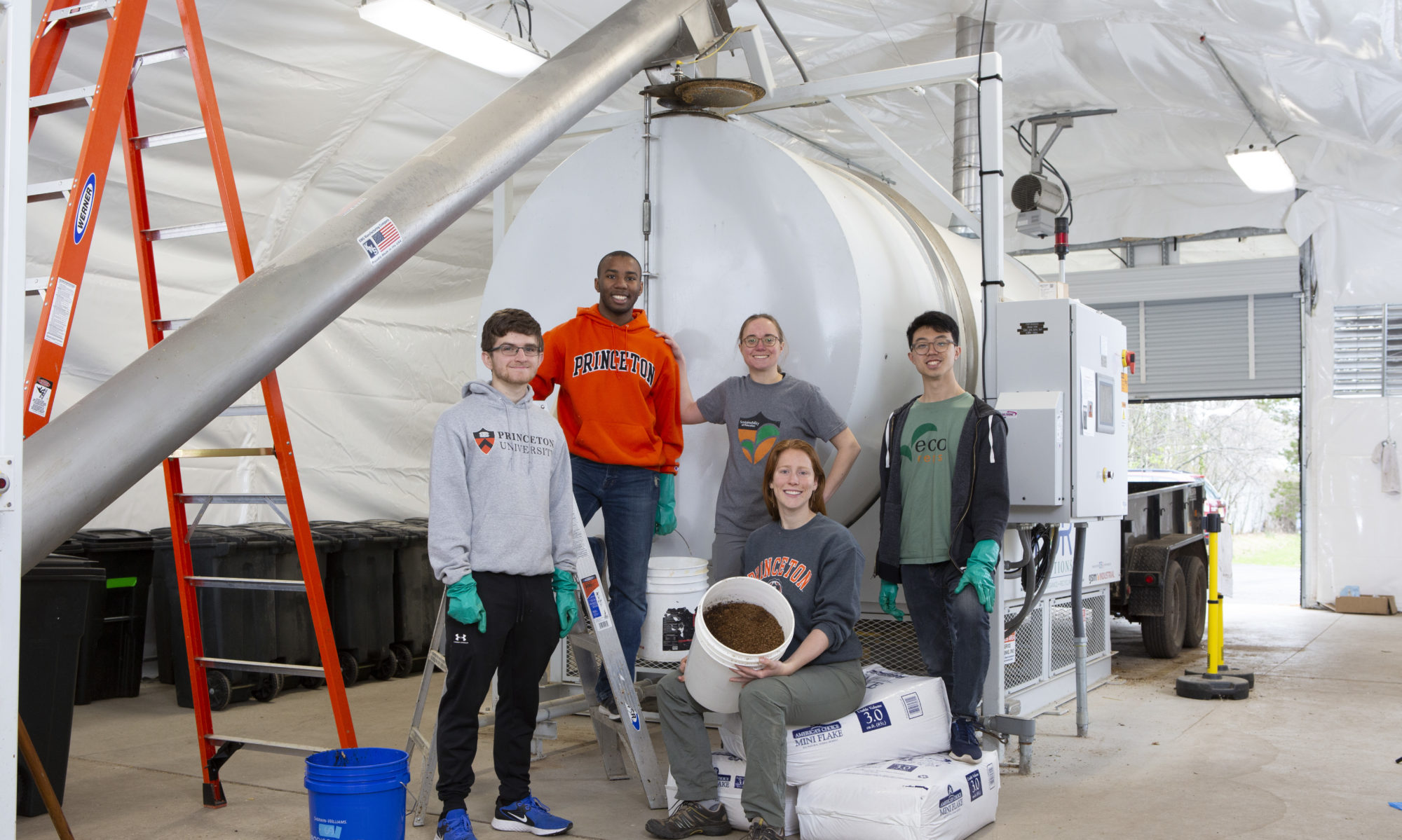Welcome back to campus for the new academic year!
It is great to see everyone back again while continuing measures to prevent the spread of covid.
This summer we received our municipal permit to begin the reconstruction of our composting facility on Washington Rd near Princeton’s solar field (see circled area on the map below)

This week the concrete was poured to create the slab and by mid-September the fabric structure will be re-erected and then we will reassemble the composting system inside (more updates and pictures to come). The operational restart is still tentative but will happen sometime this semester, likely in mid/late October.
In other composting news:
- New Jersey’s food waste diversion legislation, will go into effect this October. The bill mandates establishments (e.g. hospitals, prisons, schools, restaurants, supermarkets) that generate 52 or more tons of food waste annually must arrange for separate recycling if an authorized facility is located within 25 road miles. It will also create a market development council to assist in generating demand and finding markets for finished compost.
- At the national level, H.R. 4443 COMPOST Act was recently introduced in Congress to provide critical infrastructure and financial support for the composting industry. As currently written, this legislation has three main goals:
- Establish a USDA-led grant and loan guarantee program to provide $200 million in funding per year through 2030 for compost equipment, siting, and systems needed to expand compost facilities accepting food scraps, both public and private.
- Provide funding for collection programs and development of markets for finished compost
- Recognize compost as a conservation practice which will make compost use an eligible reimbursement item for farmers who use compost to improve soil and sequester carbon.
The ComPOSTer will continue to follow and provide updates on these and other related legislation.

When I was a student at Princeton, food waste was sent to a farm to be used as pig food. I hope that this is still the case, and that the composting facility will be used for scraps that aren’t edible by livestock – things like coffee grounds and paper products.
Does the university still send edible food scraps to feed livestock? If not, why not?
Hi Bradley, yes at some point Princeton University was sending all its edible wasted food from dining venues to a pig farm. Over the years the method of “recycling” has either been composting or animal feed. At this moment, our contracted hauler, Organic Diversion, either takes our wasted food to farms to be used as animal feed, or to a new anaerobic digestion facility in Trenton called Trenton Biogas. Here is a recent article about the facility: https://www.biocycle.net/large-scale-food-waste-digestion-in-new-jersey/. Meanwhile the S.C.R.A.P. Lab services our retail dining operations which enables us to divert single-use compostable products when possible. We hope to continue efforts to collect and compost more inedible scraps from other parts of campus too.